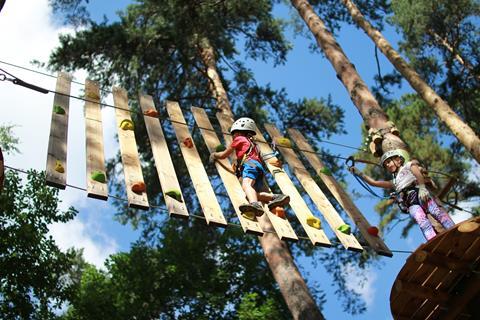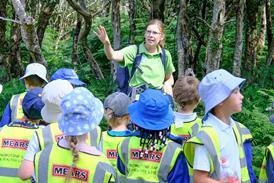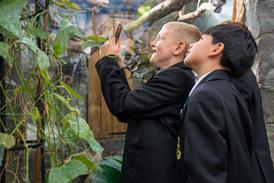Anne Hunt, of the Council for Learning Outside the Classroom (CLOtC), has her say on updated Government guidance and the need for children to reconnect with nature thanks to new evidence.

New guidance from Westminster

We were relieved to see Westminster giving the go-ahead for overnight educational visits in England. This is another stepping-stone on what feels like a very long road back to re-opening the school and educational travel sector. It reflects ongoing efforts by the Council for Learning Outside the Classroom, with many others, to increase awareness of the value of these experiences and to find practical ways to move the sector forward.
There is still lots of work to do though - not least to find solutions to help facilitate cross-border and international school travel. Closer to home there is also more work to do to rebuild school confidence in taking learning beyond school boundaries, whether that is into local areas, or further afield on day visits and residentials. One tool to help build that confidence is our ‘Learning Outside the Classroom Quality Badge’, which was set up to help schools benchmark the quality of a provider’s risk management (including infection control) and their learning offer. The Department for Education’s latest guidance continues to reiterate their recommendation that schools work with providers who hold the LOtC Quality Badge.
Evidence on what works
This year’s Mental Health Awareness Week focussed on connecting with nature. This is shining a very bright spotlight on the opportunity and need to take learning outside the classroom into natural environments. With evidence informed practice becoming increasingly important for schools, the Department for Environment, Food and Rural Affairs review ‘What Works in School Based Nature Interventions’ has some very timely conclusions:
- Outdoor learning is associated with increased academic progress and positive impacts to outcomes such as self-confidence and rates of physical activity.
- School based natural environmental activities can be of particular benefit to disadvantaged and hard to reach groups, as well as for children and young people with mental health or behavioural challenges.
The review also sheds light on the active ingredients and approaches that might help unlock the many benefits and co-benefits of nature-based learning, including:
- ‘Active ingredients’ - which appear to include the likes of positive peer and adult-child relationships; development of self-efficacy and feelings of competence.
- ‘Effective approaches’ - which appear to include the likes of: clarity in approach and intentions; involving children and young people in development and design; and progressive experiences that build on and up through the school’s wider educational delivery.

I asked Martin Gilchrist, senior adviser at Natural England, to give me his perspective on some of the key findings, and this is what he shared with me in conversation:
“Outdoor learning experiences need to be well planned, well taught, and effectively followed up. So, how can schools afford the planning, preparation, activity delivery and follow up needed to deliver the best outcomes for pupils?
“It is clear that when starting out, school staff choose to concentrate on developing skills to take their own teaching and learning into school grounds and very local spaces. As well as concentrating on their own practice and expanding what they can offer to pupils themselves, the evidence also suggests that at the same time they become more informed and ambitious consumers of a wider range of services from the outdoor learning sector too.
“Organisations that invest in their relationships with schools seem to get the best return and use of their services, and the schools and pupils they work with get the most benefit. For example, towards the end of the three-year Natural Connections Demonstration Project (which provides some understanding for schools in planning and taking their learning outside), we found that schools were working the most with the providers who were flexible in meeting school needs and developing relationships with them, and these providers were attracting more demand for work and services.
“This doesn’t necessarily mean this is easy! Some providers reported the challenges of changing school priorities and the turnover of staff. Some schools reported the challenges of the bewildering array of offers and services available from different providers, and the need for quality assurance. All of which re-enforces the need to help develop local relationships built on the common aim of delivering outcomes for children.”
Covid has placed huge challenges on schools and organisations who offer school travel services, but it has also shone a light on the need and opportunity to build better relationships that can deliver better outcomes for all.










